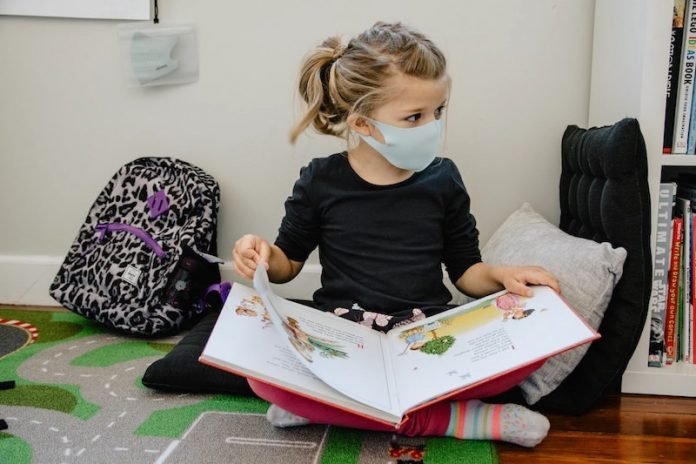
In a new study from University College London, researchers found fundamental differences in the immune response of adults and children can help to explain why children are much less likely to become seriously ill from SARS-CoV-2.
They found that a stronger ‘innate’ immune response in the airways of children, characterized by the rapid deployment of interferons, helped to restrict viral replication early on.
In adults, a less rapid immune response meant the virus was better able to invade other parts of the body where the infection was harder to control.
The immune system that we are born with is not the same as the one we have as adults.
The ‘innate’ immune system of children is better able to recognize dangerous viruses or bacteria automatically, triggering ‘naïve’ B and T cells that can adapt to the threat.
Adults have a more ‘adaptive’ immune system containing a huge repertoire of ‘memory’ B and T cell types, which have been trained through past exposure to respond to a particular threat.
Though the adult immune system also has an innate response, it is more active in children.
One of the key mechanisms of both immune systems is a group of proteins called interferons, which are released in the presence of viral or bacterial threats and tell nearby cells to tighten their defenses.
Interferons are proteins with strong anti-viral activity and their production will typically lead to the activation of B and T cells, which kill infected cells and prevent the pathogen from spreading further.
In this study, the team collected and processed matched airway and blood samples from 19 pediatric and 18 adult COVID-19 patients with symptoms ranging from asymptomatic to severe, as well as control samples from 41 healthy children and adults.
Single-cell sequencing of the samples was done and the team found 59 different cell types in airways and 34 cell types in blood, including some never previously described.
Analysis showed that interferons were more strongly expressed in healthy children compared to adults, with a more rapid immune response to infection in children’s airways.
This would help to restrict viral replication early on and give children an immediate advantage in preventing the virus from infecting the blood and other organs.
Knowing exactly how and why the immune response to SARS-CoV-2 can fail to control the infection or start to harm the body provides scientists with the means to start asking why certain individuals may be at greater risk of serious illness.
The findings will be a valuable contribution to predicting personal risk from SARS-CoV-2.
If you care about COVID-19, please read studies about why bald men may have higher risk of severe COVID-19, and why people with diabetes more likely to get severe COVID-19.
For more information about health please see recent studies about common depression drug that may help prevent severe COVID-19, and results showing that aspirin and other drugs for inflammation could help prevent COVID-19 deaths.
The study is published in Nature. One author of the study is Dr. Masahiro Yoshida.
Copyright © 2021 Knowridge Science Report. All rights reserved.



